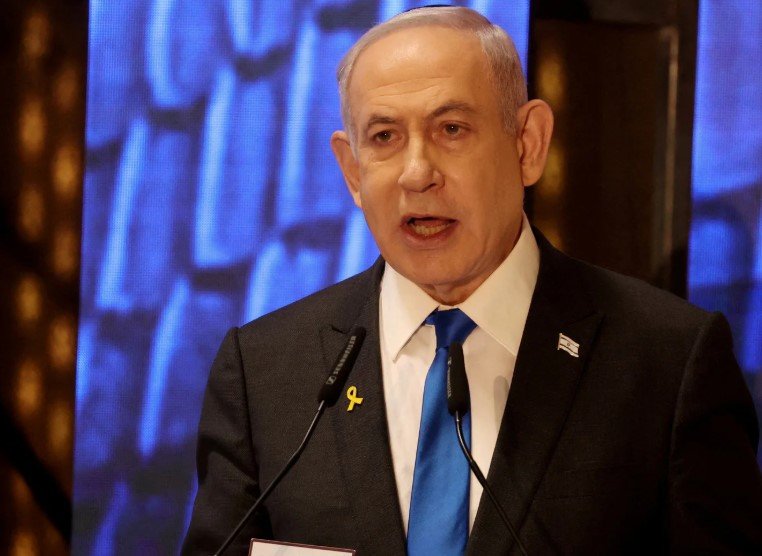Israeli Prime Minister Benjamin Netanyahu has for the first time hinted that Tel Aviv could agree to end the conflict in Gaza—provided Hamas complies with strict demands. This marks a notable shift from Israel’s longstanding stance that the war would continue until Hamas was fully dismantled.
Israel’s New Stance: War Could End, But Only on Hamas’s Terms
For years, Israel maintained an unyielding position: the Gaza conflict wouldn’t stop until Hamas was destroyed. But recent remarks from Netanyahu suggest a softening—or at least a recalibration—of that hardline policy. On Sunday, the Prime Minister’s Office revealed that Israel’s negotiation team in Doha is working intensely to explore every possible deal with Hamas.
According to the statement, the talks focus on two main proposals. The first is a limited hostage exchange coupled with a temporary ceasefire. The second is a much broader agreement that would include the release of all hostages, the disarmament of Hamas, and the exile of its leadership from Gaza.
“Even at this very moment,” the statement read, “the negotiation team in Doha is working to exhaust every possibility for a deal – whether according to the (US special envoy Steve) Witkoff framework or as part of ending the fighting, which would include the release of all the hostages, the exile of Hamas terrorists, and the disarmament of the Gaza Strip.”
This marks an unprecedented openness to dialogue after weeks of brutal fighting that has devastated Gaza and strained Israel’s international relations. Yet, it’s clear from Netanyahu’s message that any peace is contingent on Hamas meeting Israel’s strict demands.

Hostage Crisis Remains a Central Focus Amid Ceasefire Talks
The hostage situation is a painful and urgent issue in these negotiations. Hamas holds numerous Israeli citizens and soldiers captive, a fact that has fueled Israel’s resolve to continue military operations. The US, through envoy Steve Witkoff, has offered a framework to exchange hostages for a ceasefire, which Israel’s government is now seriously considering.
This proposal seeks to strike a delicate balance: a limited, short-term truce to bring hostages home, without conceding Hamas’s fundamental power in Gaza—unless a comprehensive deal can be reached.
But the big sticking points remain:
-
Full disarmament of Hamas
-
Exile of its leaders from Gaza
-
Release of all hostages
Israel sees these as non-negotiable preconditions for lasting peace. To Hamas, however, these demands challenge their very existence and political influence.
Gaza Operation “Gideon’s Chariots” Intensifies, Raising Humanitarian Concerns
While negotiations inch forward, Israeli forces have ramped up their military campaign in Gaza, dubbed “Gideon’s Chariots.” The operation aims to seize more territory, push Palestinian populations southward, and control the flow of humanitarian aid into the strip.
This aggressive strategy has raised alarms. Critics argue it risks widespread displacement of Palestinians, with some labeling it as ethnic cleansing.
The situation on the ground remains dire. Thousands of civilians have been forced to flee their homes. Essential supplies like food, water, and medical aid are increasingly scarce. International organizations have repeatedly called for safe passage and ceasefires to allow humanitarian relief.
In this context, Netanyahu’s openness to negotiations could be a sign of strategic calculation: to balance military pressure with diplomatic avenues, possibly easing international criticism while trying to achieve Israel’s security objectives.
Complex International Mediation Plays a Key Role in Talks
The talks in Doha are mediated by Egypt and Qatar, with the United States playing a critical role behind the scenes. These countries have acted as intermediaries, trying to bridge the deep divide between Israel and Hamas.
The US, in particular, has been pushing the Witkoff proposal as a way to stop the bloodshed and resolve the hostage crisis. Washington’s involvement adds significant weight to the negotiations, but it also complicates matters, given its strong alliance with Israel.
Egypt and Qatar have historically maintained connections with both sides, which positions them uniquely to facilitate dialogue. Their roles are delicate, as they must keep the process moving without alienating their own domestic and regional constituencies.
Meanwhile, international pressure on Israel to ease its blockade and allow humanitarian aid has increased. The global community watches closely, balancing calls for Israel’s right to defend itself with urgent demands to protect civilian lives.
The Road Ahead: Uncertain But With A Glimmer of Possible Resolution
So, what happens next? The answer is unclear.
Netanyahu’s comments have sparked cautious hope among those desperate for peace. Yet the stakes remain high. Hamas leaders face tough choices: give up their arms and leadership or continue fighting in the face of mounting military pressure and civilian suffering.
The hostage issue further complicates matters. For Israel, no deal without the safe return of all captives. For Hamas, hostages are a crucial bargaining chip.
There are no easy answers, and the coming days will likely see a tense mix of military moves and behind-the-scenes negotiations.
